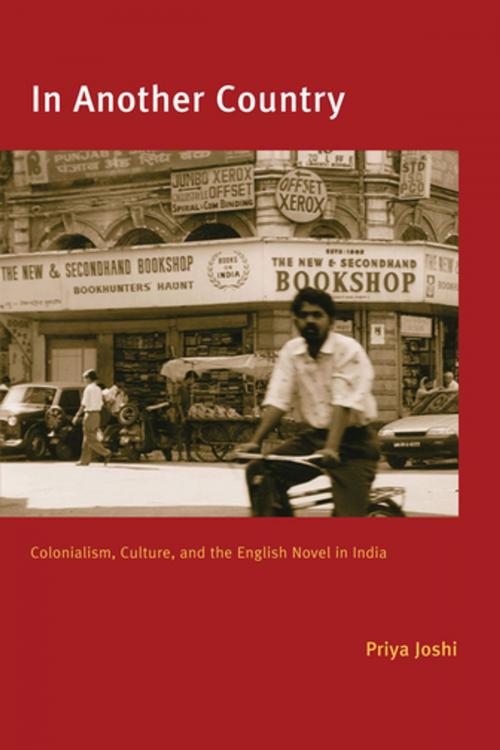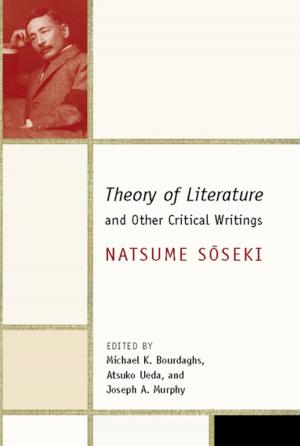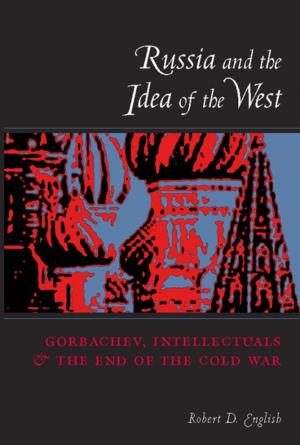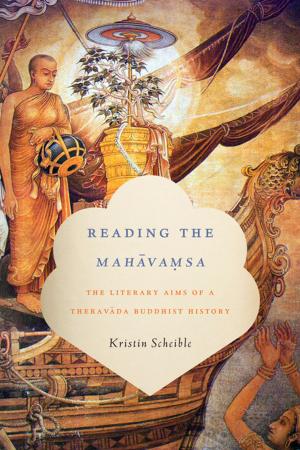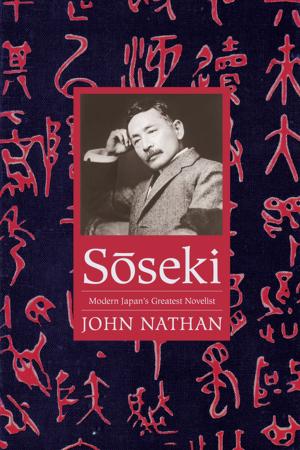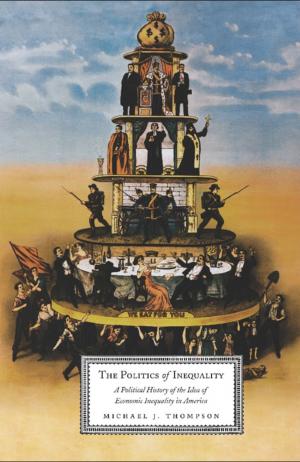In Another Country
Colonialism, Culture, and the English Novel in India
Fiction & Literature, Literary Theory & Criticism, Asian, South & Southeast Asian, British, Nonfiction, Social & Cultural Studies, Social Science| Author: | Priya Joshi | ISBN: | 9780231500906 |
| Publisher: | Columbia University Press | Publication: | April 24, 2002 |
| Imprint: | Columbia University Press | Language: | English |
| Author: | Priya Joshi |
| ISBN: | 9780231500906 |
| Publisher: | Columbia University Press |
| Publication: | April 24, 2002 |
| Imprint: | Columbia University Press |
| Language: | English |
In a work of stunning archival recovery and interpretive virtuosity, Priya Joshi illuminates the cultural work performed by two kinds of English novels in India during the colonial and postcolonial periods. Spanning the nineteenth and twentieth centuries, readers and writers, empire and nation, consumption and production, In Another Country vividly explores a process by which first readers and then writers of the English novel indigenized the once imperial form and put it to their own uses. Asking what nineteenth-century Indian readers chose to read and why, Joshi shows how these readers transformed the literary and cultural influences of empire. By subsequently analyzing the eventual rise of the English novel in India, she further demonstrates how Indian novelists, from Krupa Satthianadhan to Salman Rushdie, took an alien form in an alien language and used it to address local needs. Taken together in this manner, reading and writing reveal the complex ways in which culture is continually translated and transformed in a colonial and postcolonial context.
In a work of stunning archival recovery and interpretive virtuosity, Priya Joshi illuminates the cultural work performed by two kinds of English novels in India during the colonial and postcolonial periods. Spanning the nineteenth and twentieth centuries, readers and writers, empire and nation, consumption and production, In Another Country vividly explores a process by which first readers and then writers of the English novel indigenized the once imperial form and put it to their own uses. Asking what nineteenth-century Indian readers chose to read and why, Joshi shows how these readers transformed the literary and cultural influences of empire. By subsequently analyzing the eventual rise of the English novel in India, she further demonstrates how Indian novelists, from Krupa Satthianadhan to Salman Rushdie, took an alien form in an alien language and used it to address local needs. Taken together in this manner, reading and writing reveal the complex ways in which culture is continually translated and transformed in a colonial and postcolonial context.
